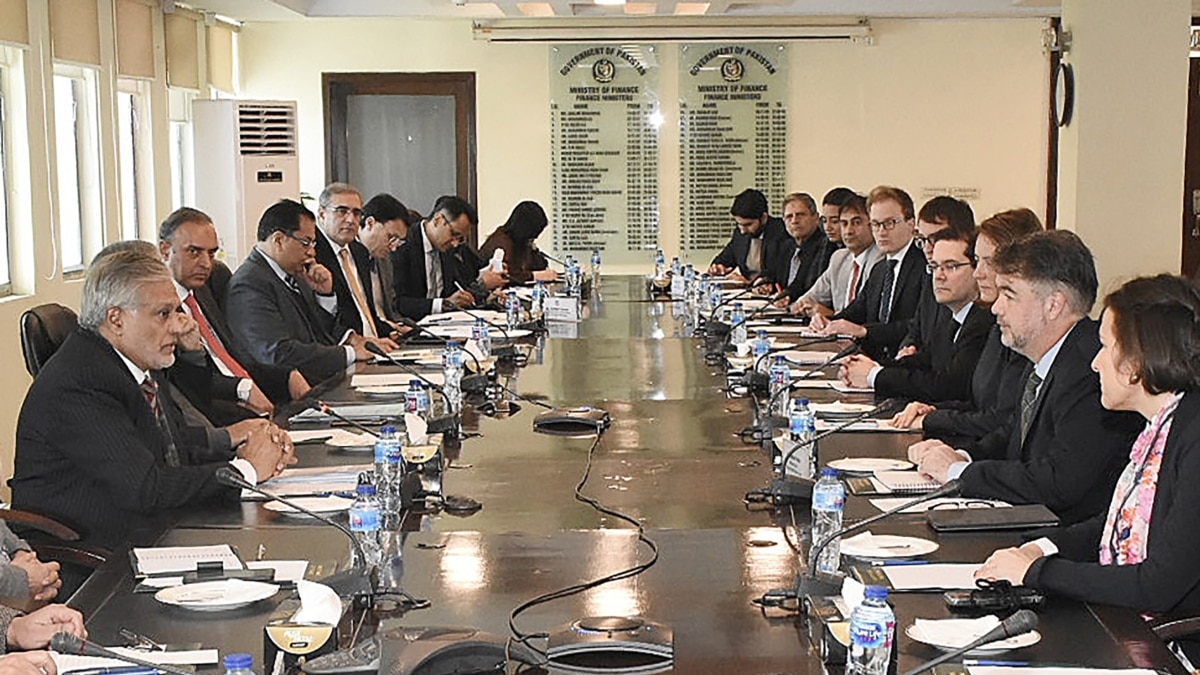
Pakistan’s fiscal situation has drawn considerable attention as the country grapples with soaring inflation, a depreciating currency, and mounting external debt. The need for an IMF bailout has become increasingly urgent, with the government seeking to secure a financial package that could stabilize the economy and provide much-needed relief to the population. Amid these challenges, the backing from key allies has been pivotal in bolstering Pakistan’s negotiating power.
The country's finance ministry has emphasized that the assistance from Saudi Arabia and the UAE, along with China’s ongoing support, has been crucial in addressing immediate financial obligations. Reports indicate that these nations have extended loans and other forms of financial assistance, which have allowed Pakistan to meet its short-term obligations and enhance its liquidity ahead of the IMF talks.
Saudi Arabia has played a particularly significant role, committing substantial financial resources in recent years to support Pakistan through various economic trials. This partnership includes not only direct financial aid but also investments aimed at fostering economic development in sectors such as energy and infrastructure. As a testament to this collaboration, Saudi investments in Pakistan have focused on projects that align with the kingdom's Vision 2030 initiative, aiming to diversify its economy and reduce reliance on oil.
Similarly, the UAE's support has manifested through various channels, including financial contributions and investments aimed at improving Pakistan’s infrastructure. With a deep-rooted historical relationship, the UAE has emerged as a crucial ally, facilitating trade and economic exchanges that benefit both nations.
China's involvement has also been vital, especially through the China-Pakistan Economic Corridor (CPEC), which represents a significant investment in infrastructure development in Pakistan. The CPEC is viewed not only as a pathway for economic growth but also as a strategic initiative that ties Pakistan's economic future closely to that of China. This connection has provided Pakistan with a level of financial stability that enhances its negotiating position with international financial institutions.
As Pakistan prepares for discussions with the IMF, there is an air of cautious optimism. Analysts suggest that the goodwill generated by Pakistan’s partnerships with these nations could play a crucial role in the upcoming negotiations. The Pakistani government is likely to present a robust case to the IMF, backed by the assurances and financial commitments received from its allies. This collaborative approach is aimed at illustrating Pakistan's commitment to implementing necessary reforms and maintaining fiscal discipline.
The IMF meeting is expected to focus on critical issues, including Pakistan's economic policies, fiscal sustainability, and social safety nets. The government is under pressure to demonstrate its commitment to implementing structural reforms aimed at addressing the underlying causes of its economic woes. Observers note that the IMF's conditions for financial assistance often include stringent measures aimed at ensuring fiscal responsibility and promoting economic stability.
The backdrop of global economic uncertainty adds complexity to Pakistan’s situation. The effects of geopolitical tensions, rising energy prices, and supply chain disruptions continue to reverberate through the global economy, presenting additional challenges for Pakistan as it seeks to secure financial assistance. The support from Saudi Arabia, the UAE, and China is seen as a crucial buffer against these external shocks, providing Pakistan with the necessary leverage in its negotiations with the IMF.
As the meeting draws closer, the Pakistani government remains engaged in discussions with various stakeholders, including political parties and civil society, to ensure a unified approach toward economic recovery. There is an emphasis on transparency and inclusivity in policymaking, which is aimed at fostering public trust in the government’s economic agenda.
The developments leading up to the IMF meeting have underscored the importance of international alliances in Pakistan’s economic strategy. By expressing gratitude to Saudi Arabia, the UAE, and China, Pakistan is not only acknowledging their support but also reinforcing its commitment to strengthening these relationships for mutual benefit.
Topics
Gcc
